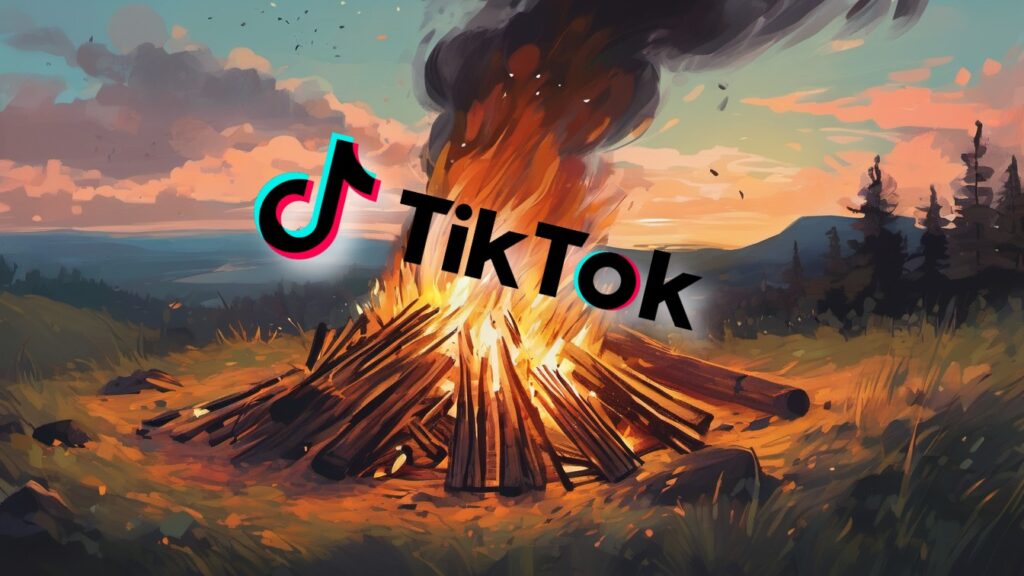
In addition to causing free speech concerns, the bill is troubling in the way it gives unchecked power to the Executive Branch.
Earlier this week the United States House of Representatives passed a bill that is being characterized as one that could ban TikTok. Styled as the Protecting Americans from Foreign Adversary Controlled Applications Act, the text of the bill calls TikTok and its owner ByteDance Ltd. by name and seeks to “protect the national security of the United States from the threat posed by foreign adversary controlled applications.”
What conduct would be prohibited?
The Act would make it unlawful for anyone to “distribute, maintain, or update” a “foreign adversary controlled application” within the United States. The Act specifically prohibits anyone from “carrying out” any such distribution, maintenance or updating via a “marketplace” (e.g., any app store) or by providing hosting services that would enable distribution, maintenance or updating of such an app. Interestingly, the ban does not so much directly prohibit ByteDance from making TikTok available, but would cause entities such as Apple and Google to be liable for making the app available for others to access, maintain and update the app.
What apps would be banned?
There are two ways one could find itself being a “foreign adversary controlled application” and thereby prohibited.
- The first is simply by being TikTok or any app provided by ByteDance or its successors.
- The second way – and perhaps the more concerning way because of its grant of great power to one person – is by being a “foreign adversary controlled application” that is “determined by the President to present a significant threat to the national security of the United States.” Though the President must first provide the public with notice of such determination and make a report to Congress on the specific national security concerns, there is ultimately no check on the President’s power to make this determination. For example, there is no provision in the statute saying that Congress could override the President’s determination.
Relatively insignificant apps, or apps with no social media component would not be covered by the ban. For example, to be a “covered company” under the statute, the app has to have more than one million monthly users in two of the three months prior to the time the President determines the app should be banned. And the statute specifically says that any site having a “primary purpose” of allowing users to post reviews is exempt from the ban.
When would the ban take effect?
TikTok would be banned 180 days after the date the President signs the bill. For any other app that the President would later decide to be a “foreign adversary controlled application,” it would be banned 180 days after the date the President makes that determination. The date of that determination would be after the public notice period and report to Congress discussed above.
What could TikTok do to avoid being banned?
It could undertake a “qualified divestiture” before the ban takes effect, i.e., within 180 days after the President signs the bill. Here is another point where one may be concerned about the great power given to the Executive Branch. A “qualified divestiture” would be situation in which the owner of the app sells off that portion of the business *and* the President determines two things: (1) that the app is no longer being controlled by a foreign adversary, and (2) there is no “operational relationship” between the United States operations of the company and the old company located in the foreign adversary company. In other words, the app could not avoid the ban by being owned by a United States entity but still share data with the foreign company and have the foreign company handle the algorithm.
What about users who would lose all their data?
The Act provides that the app being prohibited must provide users with “all the available data related to the account of such user,” if the user requests it, prior to the time the app becomes prohibited. That data would include all posts, photos and videos.
What penalties apply for violating the law?
The Attorney General is responsible for enforcing the law. (An individual could not sue and recover damages.) Anyone (most likely an app store) that violates the ban on distributing, maintaining or updating the app would face penalties of $5,000 x the number of users determined to access, maintain or update the app. Those damages could be astronomical – TikTok currently has 170 million users, so the damages would be $850,000,000,000. An app’s failure to provide data portability prior to being banned would cause it to be liable for $500 x the number of affected users.
